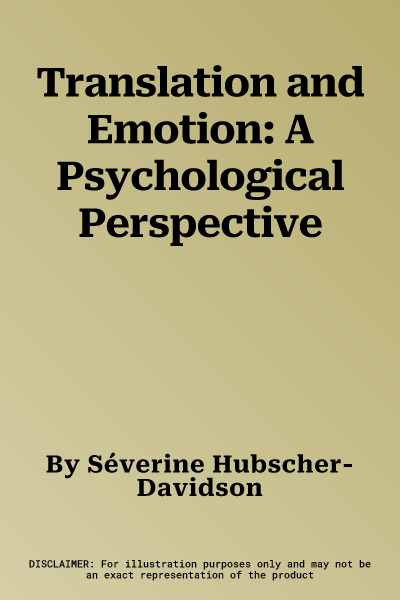Séverine Hubscher-Davidson
(Author)Translation and Emotion: A Psychological PerspectivePaperback, 30 June 2020

Qty
1
Turbo
Ships in 2 - 3 days
Only 2 left
Free Delivery
Cash on Delivery
15 Days
Free Returns
Secure Checkout

Part of Series
Routledge Advances in Translation and Interpreting Studies
Print Length
236 pages
Language
English
Publisher
Routledge
Date Published
30 Jun 2020
ISBN-10
0367594137
ISBN-13
9780367594138
Description
Product Details
Author:
Book Format:
Paperback
Country of Origin:
US
Date Published:
30 June 2020
Dimensions:
22.61 x
15.24 x
1.52 cm
ISBN-10:
0367594137
ISBN-13:
9780367594138
Language:
English
Location:
Oxford
Pages:
236
Publisher:
Weight:
362.87 gm